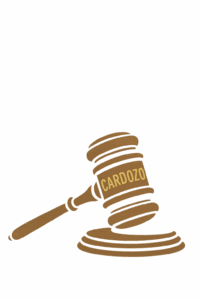How Is Negligence Defined? What Does it Mean to Be Negligent?

Maryland juries are instructed that negligence is doing something that a person using ordinary care, caution and prudence would not do, or, in fact doing something that a reasonably cautious person would not, under the circumstances. As attorney Eric T. Kirk will tell you, the standard is typically that of hypothetical “reasonable person”. The question posed, is, what, would a reasonable person in similar circumstances do, refrain from doing – or perhaps, what precautions would they take?
“How would that reasonable person react under similar circumstances?”
If the alleged negligent actor’s conduct falls outside of the bounds of reasonable expectations, you have an act of negligence. If you’ve been injured due to some action, or failure, of another, and the person that hurt you has acted in a way that this imaginary reasonable person would not have acted- that’s negligence. To prove up a case for negligence in court, a plaintiff must show that:

- the defendant owed them a duty to conform their conduct to specific standard of care that prevents harm- or the risk of harm- to others
- the defendant did not conform their and conduct that failure fairly directly led to an injury that
- damaged the plaintiff.
Now, the negligent act can take many forms. It can be an act of carelessness, e.g., not looking both ways before crossing a street, or driving a car too fast for conditions, or too close behind another car. It can be an act performed in a manner that falls beneath expectations, e.g., not properly installing a roof or tires.
How Reasonable Is Baltimore’s Reasonable Person?
How Smart Is the “Reasonable Man” in Maryland Negligence Law?
In negligence law, Maryland courts frequently rely on the standard of the reasonable person—to measure whether an individual’s conduct was negligent. But how “smart” is this legal construct supposed to be? How informed? How present? How educated? How observant? The answer is nuanced. The reasonable person is not a genius, nor is he an average individual with all of the flaws, forgetfulness, or recklessness that real people sometimes exhibit. Instead, the reasonable person embodies an objective, community-based benchmark of caution, foresight, and judgment.
The reasonable person is expected to possess ordinary prudence and intelligence. That does not mean advanced education or specialized expertise.
Baltimore Trial Lawyer Tip: If the case involves a professional negligence (like a doctor or engineer) the standard shifts.
Instead, the law assumes a baseline level of alertness, awareness, and thoughtfulness. A person of “reasonable intelligence” would notice dangers that are obvious, anticipate risks that are commonly foreseeable, and avoid conduct that puts others in unnecessary harm.
Importantly, the reasonable person should not judged according to the lowest common denominator of actual human behavior, any more than they should be judged by the highest. Courts should recognize that many people speed on highways, fail to signal turns, or leave hazards in walkways. If the standard reflected what most people actually do, negligence would rarely be found. Instead, the reasonable person sets a higher bar: what society believes people should do, even if many fail to meet it.

This standard can and frankly should a balance between caution and practicality. The reasonable person is not overly timid or paranoid. They take precautions proportionate to the risk. For example, a reasonable person would shovel their sidewalk after a snowstorm to prevent falls, but they are not expected to patrol the walkway every few minutes to clear each flake as it falls. Similarly, they would check that a ladder is stable before climbing, but they are not required to anticipate freak, unforeseeable accidents.
In terms of intelligence, the reasonable person is assumed to have a “normal” degree of perception, memory, and knowledge of everyday life. They are aware that water is slippery, fire burns, electricity shocks, and gravity pulls objects downward. However, the law does not hold them to omniscience. If a danger is truly hidden, unforeseeable, or beyond the grasp of common experience, the reasonable person should not be expected to foresee it.
Unique circumstances can modify the standard. A child is judged by what a reasonable child of similar age, intelligence, and experience would do. Conversely, a professional is measured by what a reasonable practitioner in that field would do, reflecting the higher degree of skill society expects from trained individuals.
Baltimore Trial Lawyer Tip: Professional negligence requires proof that the professional did or did not do, that a similar reasonable pro would.
The core principle remains: negligence law compares the defendant’s behavior to the judgment of a hypothetical, average, prudent adult. Ultimately, the “reasonable individual” is smart enough to recognize foreseeable risks, cautious enough to avoid unnecessary dangers, and practical enough not to go to absurd extremes. Negligence can a failure to act where there is an obligation to do so, e.g. a store owners failure to warn his or her customers that the floor is treacherous. Whatever the form of the negligent act, if it directly caused injury to another, that failure to act properly becomes “actionable” a legal word meaning you can bring a claim, or sue, for your losses. This person represents society’s collective sense of responsibility, rather than the subjective judgment of the actual defendant.
Could these acts be sufficient to convince a jury that a reasonable person, in these shoes, should have done something differently?
Would an injured Plaintiff required to prove that their was a manufacturing defect in the design, or production of the bottle?
At a Baltimore sporting event, if a team mascot distracted a spectator, who was then hit and injured by a ball, would the spectator have to prove they did not assume the risk that a ball might leave the field of play? Is the negligent act the distracting antics, or having a mascot at all?
In this video clip, I discuss how the law defines negligence:
&



